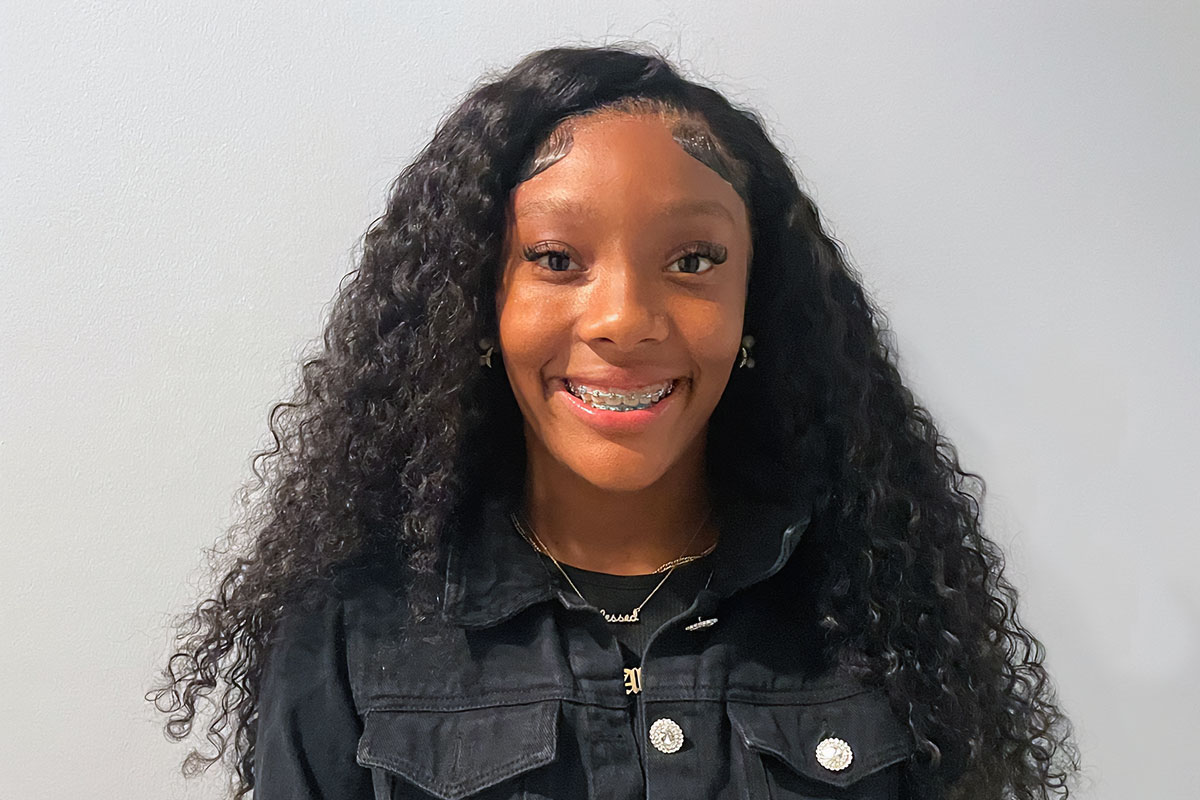Editor’s Note: This article touches upon mental health and suicide. If you are experiencing mental distress and need help, call the National Mental Health Hotline at 866-903-3787. The National Alliance on Mental Illness also offers a 24/7 text-line. To reach them, text “NAMI” to 741-741.
Starkville High School sophomore Alex Jones sat in her classroom in May 2022 when she received a text from her mother: “YOU’RE GOING TO NEW YORK!” the message read in all caps.
“I’m going to New York?” the shocked 15-year-old wondered. Suddenly, it dawned on her. “Oh, the submission!” she thought.
Just weeks earlier, Jones had seen an open submission for The Jed Foundation’s student-ambassador program. The 10th grader applied at the beginning of the month, not expecting that the nonprofit would select her. The news surprised her and brought tears of excitement and gratitude to her eyes. She spent the rest of the school day thinking about her upcoming trip.
“I never thought a little old girl like me could be doing something so big,” Jones later told the Mississippi Free Press. She had known for a long time, though, that she wanted to use her voice to help others. “I’ve always loved speaking out and being the one to say something, so just being the face of that campaign is really big for me,” she added.

JED’s student-ambassador team chose two young girls to be the face of their campaign, of which Jones was one. The National Alliance on Mental Illness, partnering with JED in their campaign alongside the department-store brand Macy’s, also had two student representatives. From there, the four girls met the Macy’s team for a photoshoot at a studio in the city, where they shared personal stories from their mental-health journeys with one another.
For Jones, visiting New York for the first time was an eye-opening experience. “I’ve never been to such a diverse place before, and being able to see the city and then do something amazing (like working with) the Macy family and the Jed family … was really great,” she said.
She spent the beginning and end of her almost three-day trip visiting tourist attractions like The Brooklyn Bridge, Times Square and the Empire State Building. “Being from a small city in a small-populated state and then going up to one of the biggest cities in the country … it was very diverse,” Jones said. “I’ve seen a lot of people I’ve never seen before, and I’ve seen a lot of cultures I’ve never seen before.”
A nonprofit organization based in New York, JED strives to make a positive influence on teens’ and young adults’ mental healths, especially in reducing suicide and substance misuse. Phil and Donna Satow founded it in 2000 after they lost their son, Jed, to suicide in 1998. When they visited the college that he had attended at the time, they realized that many universities did not have formal procedures in place to prevent suicide. They saw a lack of attention being given to promoting mental health, particularly among the college population and young-adult demographic.
JED’s signature program, JED Campus, works with colleges and universities across the United States, evaluating their policies and systems that promote mental health in students, to ensure that teens have the skills and assistance to flourish. The nonprofit has since expanded its many programs toward high-school students as well.
“It Was Very Stressful on Me”
Alex Jones was born in Jackson, Miss., but has lived in Starkville for the last several years. She has one little brother and enjoys playing varsity softball and volleyball at her school. After the pandemic began, she missed seeing her friends and struggled with the lack of social stimulation.
“It was very stressful on me, because I’m a very social person … I love being around people, and that just kind of made me sink in,” Jones said. “Just the really depressive state and isolation of the pandemic had an effect on my mental health.”
She only managed to keep in touch with friends through texting, FaceTime, and phone calls. “It just didn’t feel the same as being right there with somebody,” she said.
Jones’ mom was the first to notice a change in her daughter. “She is a mental-health therapist for kids, so she works with kids who are struggling with their mental health,” Jones said of her mother. “It’s easy for her to spot signs of somebody struggling with their mental health.”

The now 16-year-old first learned about JED in 2020, during the pandemic, but did not become involved until 2021 at the beginning of her 9th-grade year in school. At the start of 2022, JED introduced her to resources, like their app, Seize the Awkward. It features short videos for young adults that teach users how to start conversations about mental health.
“They’ve proven to be very effective,” Adee Sheppen, chief development officer of JED, told the Mississippi Free Press. “Not only have they been viewed thousands of times by a host of young people, but there’s also been some research … that has shown the impact of having seen the campaign. After watching the campaign, they are much more likely to reach out to a friend.”
Macy’s partnered with the National Alliance of Mental Illness to fund the scaling of JED Foundation’s back-to-school effort in their JED Campus program. The roundup campaign ran from Aug. 1 to Sept 14, 2022, with a purpose to reach more schools faster, to focus on community colleges and to schools with lower resources.
Customers had the option to round up their purchases’ price amount to the nearest dollar. They could also donate through the Macy’s website and app. At the end of the six weeks, Macy’s had raised $900,000 for JED and a total of $1.8 million for mental health. NAMI received the other 50% of the accumulated funds. Sheppen admires the national brand for stepping up publicly to voice their concern for young adults’ mental health. “I think that Macy’s is really to be commended for stepping into this space,” she said.
Creating ‘Opportunities for Connection’
Based on their previous campaigns, JED expects that the roundup campaign will lead to institutions being better at identifying students at risk on campuses. The nonprofit hopes students will use counseling centers more often and will find more opportunities to connect with one another. One change they expect to see is a decrease in students’ access to lethal means.
“Loneliness is a big risk factor in self-harm and suicide, so the more we can bring people together and create opportunities for connection, especially post-COVID, the better students will be,” Adee Sheppen said.
Although JED’s values have remained consistent, current events and the development of technology influence aspects of their programs. One of these is social media. Although no specific data shows social media is a definitive cause of mental-health problems, JED recognizes social media’s effects on mental health, as well as the isolation that COVID-19 caused. As young people become more active on social media, so does JED. The nonprofit’s trained staff stay up-to-date on trends to transition with the world’s current events.
“As things have changed in our world and technology and other issues that have risen to the floor, we have obviously adapted to accommodate those,” JED Chief Clinical Director Nance Roy told the Mississippi Free Press.
Jones believes that a positive social-media post can be a beneficial outlet, if used wisely.
“Talking around your community or your peers—just going to check up on somebody—can always be good,” the student ambassador said. Talking to her friends always uplifts her and boosts her mood, she explained.
In the future, Jones wants to work for a sports department and create an outlet for athletes’ mental health. Being a student athlete herself, she recognizes the struggles that can weigh on young people.
“The pressures of trying to be great for yourself, for your teammates, for your coaches, for your parents, for your friends, for your supporters, for your fans, family, friends, fans (can affect mental wellbeing),” she said. (Or) trying to push yourself to be the best or be better than the next team or better than the competition.”
For more information about The Jed Foundation and its mission to improve mental health, visit jedfoundation.org, which has resources on its homepage for those who need assistance in managing their mental health and for those who would like to help JED’s cause. The National Alliance on Mental Illness also has mental-health resources available at nami.org.
Do you know a Mississippian you believe deserves public recognition? Nominate them for a potential Person of the Day article at mfp.ms/pod.






